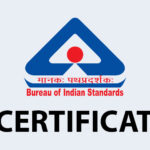ONE PERSON COMPANY IN INDIA – AN OVERVIEW
One Person Company in India was introduced through Companies Act, 2013 with an objective to support entrepreneurs carrying on the business in the Sole-Proprietor form of business with a Corporate Framework. One of the biggest advantages of an OPC is that there can be only one member in an OPC while a minimum of two members is required for incorporating and maintaining a Private Limited Company or a Limited Liability Partnership. An OPC is a separate legal entity from its members and offers limited liability protection to its shareholders which is similar to a company. Formation and maintenance of an OPC are easier and cost effective.
FEATURES OF ONE PERSON COMPANY IN INDIA
#1. One Shareholder
 This is the basic concept of a One Person Company. One Person Company is defined in the Companies Act as a Company which has only one member. A single shareholder holds 100 percent shareholding. Only a natural person who is a resident of India and also a citizen of India can form a one person company. It means that other legal entities like companies or societies or other corporate entities cannot form a one person company.
This is the basic concept of a One Person Company. One Person Company is defined in the Companies Act as a Company which has only one member. A single shareholder holds 100 percent shareholding. Only a natural person who is a resident of India and also a citizen of India can form a one person company. It means that other legal entities like companies or societies or other corporate entities cannot form a one person company.
#2. One Director
One Person Company must have one or more directors. The Sole Shareholder can himself be the Sole Director. However, the total number of directors shall not be more than 15.
#3. Nominee
The Shareholder shall nominate another person who becomes the shareholders in case of death/incapacity of the original shareholder. Such nominee shall give his/her consent and such consent for being appointed as the Nominee for the sole Shareholder. Only a natural person, who is an Indian citizen and resident in India shall be a nominee for the sole member of a One Person Company.
#4. Facilities In Compliance
One Person Company is eligible to get freedom from complying with many requirements as normally applicable to other private limited Companies. Certain sections like Section 96, 98 and sections 100 to 111 are not applicable for a One Person Company.
#5. Related Party Transaction
When a One Person Company enters into a contract with the sole owner of the company who is also the director of the company, the company shall, unless the contract is in writing, ensure that the terms of the contract or offer are contained in a memorandum are recorded in the minutes of the first meeting of the Board of Directors of the company held next after entering into contract.
TERMS & CONDITIONS OF ONE PERSON COMPANY IN INDIA
● A person shall not be eligible to incorporate more than a One Person Company or become the nominee in more than one such company.
● Minor cannot become member or nominee of the One Person Company or can hold the share with beneficial interest.
● An OPC cannot be incorporated or converted into a company under Section 8 of the Act. [Company not for Profit].
● An OPC cannot carry out Non-Banking Financial Investment activities including investment in securities of any body corporate.
● An OPC cannot convert voluntarily into any kind of company unless two years have expired from the date of incorporation of One Person Company, except threshold limit (paid up share capital) is increased beyond Rs.50 Lakhs or its average annual turnover during the relevant period exceeds Rs.2 Crores i.e., if the Paid-up capital of the Company crosses Rs.50 Lakhs or the average annual turnover during the relevant period exceeds Rs.2 Crores, then the OPC has to invariably file forms with the ROC for conversion into a Private or Public Company, within a period of Six Months on breaching the above threshold limits.
ONE PERSON COMPANY INCORPORATION PROCESS
1. Obtain Digital Signature Certificate [DSC] for the proposed Director(s).
2. Obtain Director Identification Number [DIN] for the proposed director(s).
3. Select Company Name, and make an application to the Ministry of Corporate Office for the availability of the name.
4. Draft Memorandum of Association and Articles of Association [MOA & AOA].
5. Sign and file various documents including MOA & AOA with the Registrar of Companies electronically.
6. Payment of the Requisite fee to Ministry of Corporate Affairs and also Stamp Duty.
7. Scrutiny of documents at Registrar of Companies [ROC].
8. Receipt of Certificate of Registration/Incorporation from ROC.
Once a One Person Company is incorporated, it will be active and in existence as long as the annual compliances are met with regularly.


